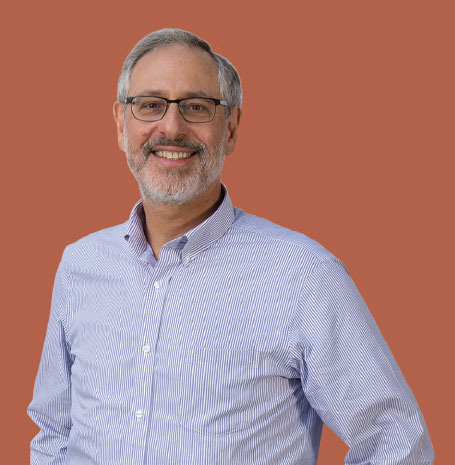
Error: No layouts found
Myles Akabas, M.D., Ph.D., is trying to develop novel antimalarial drugs, based on the parasites’ Achilles’ heel: They can’t synthesize the purines needed for making DNA and RNA. So they rely on a parasite protein called PfENT1 to transport purines from the host red blood cells. Dr. Akabas has developed a high-throughput assay to identify inhibitors of the PfENT1 transporter. He is a professor in the departments of physiology & biophysics and of medicine and in the Dominick P. Purpura Department of Neuroscience, and director of Einstein’s Medical Scientist Training Program (MSTP).

I was an MSTP student here in the deep, dark past, from 1977 to 1983. Then I went to Columbia for an internship and residency in internal medicine. I was on the Columbia faculty for 15 years. Einstein recruited me back here in 2000, and I became MSTP director in 2004.
The students are a wonderful and dedicated group. They undergo a separate admissions process that identifies people who really want to be physician-scientists. I greatly enjoy teaching them and overseeing their development over the eight years that it takes to complete the MSTP.
From as long ago as I can remember. My father, a CPA, had a client who owned a newsstand in Brooklyn, and he’d go there once a month to do the books. He came back with magazines—Scientific American for me; Mad magazine for my brother, who became a lawyer. I vividly recall reading those Scientific Americans in middle school and wanting to be a scientist.
At Scarsdale High I played soccer and lacrosse and wrestled during junior year. The wrestling team had no one in the 180-pound weight class that year, and forfeiting meant losing five points. I weighed only 170, but the coach knew I was a good athlete and asked me to try out. Even if I lost, we’d lose only three points provided I didn’t get pinned. So my goal that season was to not get pinned.
I went to Cornell and played lacrosse on the freshman team, and played on the varsity team my sophomore year, when I detached the collateral ligaments in my thumb during practice. That ended my college lacrosse career—and the team went on to win the NCAA championships the following two years. But the injury was also a blessing in disguise.
At the time my college grade point average was only 3.3, and MSTP programs don’t say, “Let’s admit this guy for our lacrosse team.” My grades improved greatly after I could no longer play lacrosse.
My favorite thing to do is hike in the mountains—day hiking and backpacking. The Rockies are my favorite place. My wife and three children and I spend most of our summer vacations hiking and backpacking through Colorado, the Tetons and Mount Rainier, and up into Canada to the Banff and Jasper National Parks. We carry everything with us: three to five days’ worth of food, tents, sleeping bags, a stove, gas for cooking and bear spray to scare away grizzlies, which luckily we’ve never had to use. It’s a lot of fun to get out in the woods—no cell phone, no Internet, beautiful scenery.